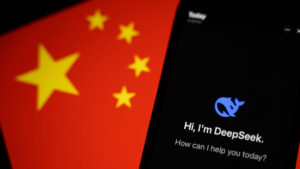Xi Emphasizes the Need for China to Address AI Chip Challenges

China’s Ambition in AI Technology
President Xi Jinping emphasized the need for China to address the challenges of developing core artificial intelligence (AI) technologies, particularly high-end chips. This statement came during a meeting of China’s top leaders, as reported by state media. The goal is to position China as a leader in the rapidly evolving AI sector, a vision complicated by ongoing trade tensions with the United States.
US-China Trade Tensions
The trade relationship between the US and China has soured significantly, leading to an escalating conflict. For instance, many products face a staggering 145 percent tariff imposed by the US, while China has retaliated with 125 percent duties on American imports. These trade barriers make it more challenging for China to acquire certain critical technologies.
Focus on Core Technologies
During the Politburo meeting, Xi stressed the importance of reinforcing basic research and tackling issues in crucial areas like advanced chips and core software. He also highlighted the aspiration to develop an autonomous AI system that can function independently. Since the introduction of ChatGPT in November 2022, there has been a surge in generative AI models both in the US and China, showcasing rapid advancements in the field.
Emergence of Chinese AI Startups
Chinese startups are making significant strides in AI. For example, in January, DeepSeek launched its R1 chatbot, demonstrating performance comparable to its American counterparts at a lower cost. This indicates that competition in the AI domain is intensifying, pushing both nations to innovate more swiftly.
Promoting Self-Reliance
Despite these advancements, Xi acknowledged existing gaps within the Chinese industry, emphasizing the necessity for self-reliance in AI. He stated that it is vital to bolster domestic capabilities in this arena. Political backing will play a crucial role in achieving this goal, backed by supportive policies on intellectual property rights, taxation, and public procurement.
Impact of US Policies
Under both President Trump and President Biden, the US has implemented bans or restrictions on exports of advanced processors that are essential for developing sophisticated AI models in China. The measures include stringent licensing requirements affecting companies like Nvidia and AMD, which could harm their operations. Nvidia’s CEO, Jensen Huang, recently visited Beijing and expressed a willingness to engage further with the Chinese market and support trade cooperation between the US and China.
Global Concerns Over Data Privacy
China’s ambitions in AI have raised alarms across various countries, especially concerning the handling of personal data. Many are apprehensive about the potential for this data to be accessed by Chinese authorities, highlighting the need for transparency and ethical considerations in AI development.
The Road Ahead for China’s AI Strategy
As China continues to pursue its AI goals, the balance between innovation, self-sufficiency, and international relations will be crucial. The ongoing trade tensions and technological restrictions from the US could impact China’s ability to achieve its ambitions, making it imperative for the nation to cultivate its domestic technology sector while navigating complex geopolitical dynamics.






